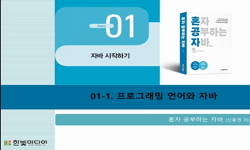Objectives : Bipolar disorder is known to have a high genetic predisposition. Recently, the main focus of etiologic studies in bipolar disorder has been concentrated on molecular genetic approach including gene polymorphism analysis. The present study...
http://chineseinput.net/에서 pinyin(병음)방식으로 중국어를 변환할 수 있습니다.
변환된 중국어를 복사하여 사용하시면 됩니다.
- 中文 을 입력하시려면 zhongwen을 입력하시고 space를누르시면됩니다.
- 北京 을 입력하시려면 beijing을 입력하시고 space를 누르시면 됩니다.

양극성 장애 1형에서 종양괴사인자 베타 유전자 다형성 = Polymorphism of Tumor Necrosis Factor-β Gene in Bipolar I disorder
한글로보기https://www.riss.kr/link?id=A75056467
- 저자
- 발행기관
- 학술지명
- 권호사항
-
발행연도
2005
-
작성언어
Korean
- 주제어
-
KDC
513.85
-
등재정보
KCI등재후보
-
자료형태
학술저널
- 발행기관 URL
-
수록면
671-675(5쪽)
-
KCI 피인용횟수
0
- 제공처
-
0
상세조회 -
0
다운로드
부가정보
다국어 초록 (Multilingual Abstract)
Methods : 89 bipolar I disorder patients diagnosed by DSM-IV criteria were assigned as the patient group and 202 normal population, matched on age and sex from Catholic hemopoietic stem cell bank (Seoul, Korea), were enrolled as the control group in this study. Genotyping was performed by a polymerase chain reaction-restriction fragment length polymorphism method. All data was analyzed by x² test.
Results : There were no significant differences in frequency of TNFB*1/1,TNFB*1/2 and TNFB*2/2 between bipolar I disorder patient group and normal control group. The frequency of TNFB*1 was not statistically different between bipolar I disorder patient group and normal control group.
Conclusion : The difference of frequency in TNFB*1/TNFB*2 gene between the bipolar I disorder gropup and the normal contro1 could not be verified. The present result suggested that the gene polymorphism of TNFB may not play a significant role in susceptibility to bipolar I disorder. Studies with a larger number of subjects from different ethnic backgrounds, considring clinical phenotype and controlling various factors, should be launched to further determine the role of TNFB in bipolar I disorder.
Objectives : Bipolar disorder is known to have a high genetic predisposition. Recently, the main focus of etiologic studies in bipolar disorder has been concentrated on molecular genetic approach including gene polymorphism analysis. The present study was conducted to investigate whether TNFB polymorphism is associated with bipolar I disorder in the Korean population.
Methods : 89 bipolar I disorder patients diagnosed by DSM-IV criteria were assigned as the patient group and 202 normal population, matched on age and sex from Catholic hemopoietic stem cell bank (Seoul, Korea), were enrolled as the control group in this study. Genotyping was performed by a polymerase chain reaction-restriction fragment length polymorphism method. All data was analyzed by x² test.
Results : There were no significant differences in frequency of TNFB*1/1,TNFB*1/2 and TNFB*2/2 between bipolar I disorder patient group and normal control group. The frequency of TNFB*1 was not statistically different between bipolar I disorder patient group and normal control group.
Conclusion : The difference of frequency in TNFB*1/TNFB*2 gene between the bipolar I disorder gropup and the normal contro1 could not be verified. The present result suggested that the gene polymorphism of TNFB may not play a significant role in susceptibility to bipolar I disorder. Studies with a larger number of subjects from different ethnic backgrounds, considring clinical phenotype and controlling various factors, should be launched to further determine the role of TNFB in bipolar I disorder.
참고문헌 (Reference)
1 "정신분열병에서 종양괴사인자 베타 유전자의 제한효소 절편길이 다형성" 40 : 341-346, 2001
2 "physicalmanifestation of bipolar affective disorder" 887-891, neuropsychopharmacolbiolpsychiatry1988
3 "Visualization andcharacterization of interleukin 1 receptors in brain" 139 : 459-463, 1987
4 "Theeffect of TNF*B gene polymorphism on TNF-alpha and -beta secretionlevels in patients with insulin-dependent diabetes mellitus andhealthy controls" 23 : 425-435, 1996
5 "The neuropsychiatric effects of treatment with interleukin-2and lymphokine-activated killer cells" 107 : 293-300, 1987
6 "The interaction between depressive affectivedisorder and neuropsychological test performance in multiple sclerosispatients" 3 : 28-32, 1991
7 "The gene polymorphismof tumor necrosis factor-beta,but not that of tumor necrosisfoactor-alpha,is associated with the prognosis of sarcoidosis" 119 : 753-761, 2001
8 "The future of genetic studies of complex humandisease" 273 : 1516-1517, 1996
9 "T-helper types 1,2,and 3 cytokine interactions in symptomatic manicpatients" 129 : 267-272, 2004
10 "Reducedcellular immune function in major depression and mania" 235-237, psychiatryres1989
1 "정신분열병에서 종양괴사인자 베타 유전자의 제한효소 절편길이 다형성" 40 : 341-346, 2001
2 "physicalmanifestation of bipolar affective disorder" 887-891, neuropsychopharmacolbiolpsychiatry1988
3 "Visualization andcharacterization of interleukin 1 receptors in brain" 139 : 459-463, 1987
4 "Theeffect of TNF*B gene polymorphism on TNF-alpha and -beta secretionlevels in patients with insulin-dependent diabetes mellitus andhealthy controls" 23 : 425-435, 1996
5 "The neuropsychiatric effects of treatment with interleukin-2and lymphokine-activated killer cells" 107 : 293-300, 1987
6 "The interaction between depressive affectivedisorder and neuropsychological test performance in multiple sclerosispatients" 3 : 28-32, 1991
7 "The gene polymorphismof tumor necrosis factor-beta,but not that of tumor necrosisfoactor-alpha,is associated with the prognosis of sarcoidosis" 119 : 753-761, 2001
8 "The future of genetic studies of complex humandisease" 273 : 1516-1517, 1996
9 "T-helper types 1,2,and 3 cytokine interactions in symptomatic manicpatients" 129 : 267-272, 2004
10 "Reducedcellular immune function in major depression and mania" 235-237, psychiatryres1989
11 "Polymorphism within the tumor necrosis factor locus and prevalenceof coronary artery disease in middle-aged men" 154 : 691-697, 2001
12 "Polymorphic structure of the tumor necrosis factor an NcoI polymorphism in the first intron of the human TNF-β genecorrelates with a variant amino acid in position 26 and a reduced levelof TNF-β production" 209-219, jexpmed1991
13 "Polymorphic MHC ancestralhaplotypes affect the activity of tumor necrosis factor-alpha" 92 : 14-18, 1993
14 "Leukaemia inhibitoryfactor mRNA is expressed in the brains of patients with subacutesclerosing panencephalitis" 77 : 57-62, 1997
15 "Interleukin-10 and tumor necrosis factor gene polymorphismsand risk of coronary artery disease and myocardial infarction.Atherosclerosis" 159 : 137-144, 2001
16 "Interleukin-1 immunoreactiveinnervation of the human hypothalamus" 240 : 321-324, 1988
17 "Increased plasma concentrations ofIL-6,soluble IL-6 receptor,soluble IL-2 receptor and transferrin receptorin major depression" 34 : 301-309, 1995
18 "Immune function in mania" 24 : 314-343, Psychiatry1988
19 "Humoral autoimmune phenomena under longterm treatment with lithium with special regard to thyroid auto antibodies" 60 : 1501-1504, 1982
20 "Hashimoto’s encephalopathy presenting as "myxodematous madness"J Neurol Neurosurg Psychiatry" 68 : 102-103, jneurolneurosurgpsychiatry2000
21 "Effect of lithium carbonate therapy on thyroid immunestatus in manic depressive patients:a prospective study" 11 : 155-160, Disord1986
22 "Differential effect of mixed D1/D2 and selective D2 dopaminergic antagonists on mouse T and Blymphocyte proliferation and interleukin production in vitro" 10 : 501-512, 1988
23 "Cytokine production in bipolar affective disorder patients under lithiumtreatment" 82 : 309-313, 2004
24 "Comprehensive Textbook of Psychiatry" Lippincott Williams & Wilkins 1308-1309, 2001
25 "Chronic lithium-induced downregulation ofMARCKS in immortalized Hippocampal cells:potentiation by muscarinicreceptor activation" 67 : 767-777, 1996
26 "Anti-bipolar therapy:mechanism of action of lithium" 4 : 117-128, 1999
27 "Allelic variation in the TNF-β gene does not explain the lowTNF-β responses in patients with primary biliary cirrhosis" 34 : 735-740, 1991
28 "Activationof indices of cell-mediated immunity in bipolar disorder" 45 : 989-994, 1999
29 "A simple salting out procedure forextracting DNA from human nucleated acid" 16 : 1215-, 1988
동일학술지(권/호) 다른 논문
-
한국인에서 NOTCH4 유전자 내 두 개의 단일염기다형성과 정신분열병의 연합연구
- 大韓神經精神醫學會
- 주은정
- 2005
- KCI등재후보
-
- 大韓神經精神醫學會
- 천근아
- 2005
- KCI등재후보
-
- 大韓神經精神醫學會
- 김대호
- 2005
- KCI등재후보
-
- 大韓神經精神醫學會
- 송주연
- 2005
- KCI등재후보
분석정보
인용정보 인용지수 설명보기
학술지 이력
| 연월일 | 이력구분 | 이력상세 | 등재구분 |
|---|---|---|---|
| 2023 | 평가예정 | 재인증평가 신청대상 (재인증) | |
| 2020-01-01 | 평가 | 등재학술지 선정 (재인증) |  |
| 2018-01-01 | 평가 | 등재후보학술지 선정 (신규평가) |  |
| 2016-12-01 | 평가 | 등재후보 탈락 (계속평가) | |
| 2015-12-01 | 평가 | 등재후보로 하락 (기타) |  |
| 2011-01-01 | 평가 | 등재학술지 유지 (등재유지) |  |
| 2009-01-01 | 평가 | 등재학술지 유지 (등재유지) |  |
| 2006-01-01 | 평가 | 등재학술지 선정 (등재후보2차) |  |
| 2005-01-01 | 평가 | 등재후보 1차 PASS (등재후보1차) |  |
| 2003-01-01 | 평가 | 등재후보학술지 선정 (신규평가) |  |




 RISS
RISS 스콜라
스콜라




